
Asaba: The Tranquil Jewel of Nigeria's Delta State
Asaba, the capital of Delta State in Nigeria, is a city that perfectly blends traditional African charm with modern urbanity. Nestled on the western bank of the River Niger, Asaba is known for its serene environment, rich history, and vibrant culture. This city offers a peaceful retreat from the hustle and bustle of Nigeria's larger cities, making it an ideal destination for tourists seeking relaxation and a taste of authentic Nigerian life. One of the main attractions in Asaba is the River Niger Bridge, which connects the city to the bustling commercial hub of Onitsha. The scenic views from the bridge, especially at sunset, are a sight to behold. The city is also home to a variety of historical sites, such as the Mungo Park House, which commemorates the famous Scottish explorer. For those interested in the arts, the Otuogu Festival is a must-see event, showcasing traditional dances, music, and crafts. Nature lovers will find plenty to explore in Asaba. The nearby Asaba Beach offers a relaxing spot for picnics and water activities. The city’s botanical gardens and nature reserves provide a peaceful escape into nature's beauty. The bustling markets, such as the popular Ogbogonogo Market, offer a delightful shopping experience where you can find local crafts, textiles, and fresh produce. Food enthusiasts will enjoy the diverse culinary offerings in Asaba. From local delicacies like 'Ofe Nsala' (white soup) to a variety of street food options, the city's cuisine is both delicious and diverse. Asaba is also known for its hospitality, with numerous hotels and guesthouses providing comfortable accommodations for travelers. Overall, Asaba is a hidden gem that offers a unique blend of natural beauty, cultural richness, and modern amenities.
Local tips in Asaba
- Visit the River Niger Bridge at sunset for breathtaking views.
- Explore the local markets like Ogbogonogo Market for unique crafts and fresh produce.
- Plan your visit during the Otuogu Festival to experience traditional dances and music.
- Try local delicacies like 'Ofe Nsala' at traditional restaurants.
- Stay at hotels or guesthouses that offer views of the River Niger for a serene experience.
Asaba: The Tranquil Jewel of Nigeria's Delta State
Asaba, the capital of Delta State in Nigeria, is a city that perfectly blends traditional African charm with modern urbanity. Nestled on the western bank of the River Niger, Asaba is known for its serene environment, rich history, and vibrant culture. This city offers a peaceful retreat from the hustle and bustle of Nigeria's larger cities, making it an ideal destination for tourists seeking relaxation and a taste of authentic Nigerian life. One of the main attractions in Asaba is the River Niger Bridge, which connects the city to the bustling commercial hub of Onitsha. The scenic views from the bridge, especially at sunset, are a sight to behold. The city is also home to a variety of historical sites, such as the Mungo Park House, which commemorates the famous Scottish explorer. For those interested in the arts, the Otuogu Festival is a must-see event, showcasing traditional dances, music, and crafts. Nature lovers will find plenty to explore in Asaba. The nearby Asaba Beach offers a relaxing spot for picnics and water activities. The city’s botanical gardens and nature reserves provide a peaceful escape into nature's beauty. The bustling markets, such as the popular Ogbogonogo Market, offer a delightful shopping experience where you can find local crafts, textiles, and fresh produce. Food enthusiasts will enjoy the diverse culinary offerings in Asaba. From local delicacies like 'Ofe Nsala' (white soup) to a variety of street food options, the city's cuisine is both delicious and diverse. Asaba is also known for its hospitality, with numerous hotels and guesthouses providing comfortable accommodations for travelers. Overall, Asaba is a hidden gem that offers a unique blend of natural beauty, cultural richness, and modern amenities.
When is the best time to go to Asaba?
Iconic landmarks you can’t miss
CARTEGE CINEMAS ASABA
Discover an exceptional cinematic experience at Cartege Cinemas Asaba, where the latest films meet comfort and technology.
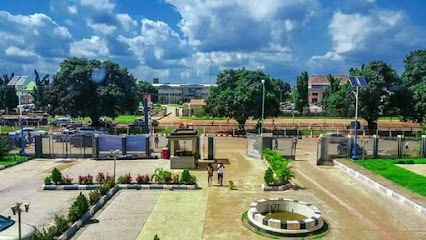
Ogbeogonogo market
Discover the heart of Asaba at Ogbeogonogo Market, a vibrant place brimming with local flavors, crafts, and lively interactions.
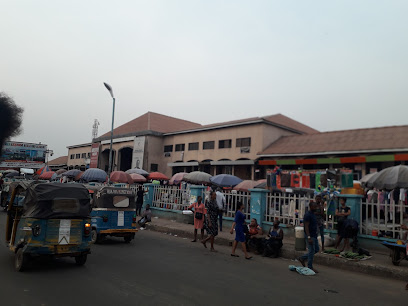
Econos Technology Nigeria Limited (ETNIL)
Discover the innovative world of engineering at Econos Technology Nigeria Limited in Asaba, a vibrant hub of technological advancement and creativity.
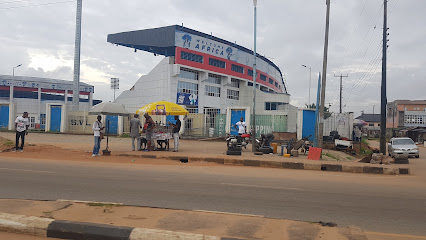
Midwifery Market
Explore the lively Midwifery Market in Asaba, a vibrant hub of local culture, fresh produce, and delicious street food.
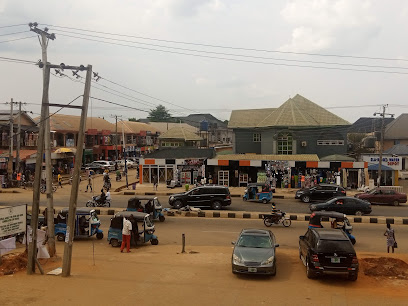
Summit Junction Asaba (Climax De Top)
Experience the best of Nigerian cuisine at Summit Junction Asaba, where fresh fruits meet sizzling barbecue in a vibrant atmosphere.
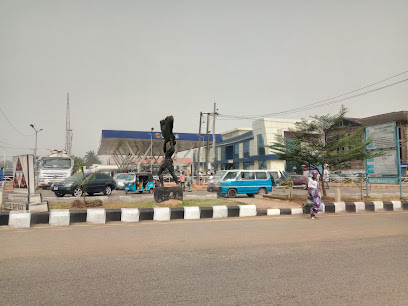
Nelson Mandela Gardens and Resort
Experience tranquility and culture at Nelson Mandela Gardens and Resort in Asaba, Delta State, where nature and heritage unite for a memorable visit.
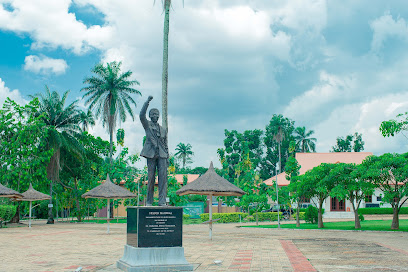
Pinnacle Castle Hotel Asaba
Experience luxury and comfort at Pinnacle Castle Hotel in Asaba, where modern amenities meet cultural richness in the heart of Delta State.
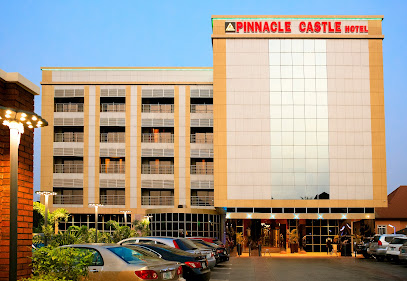
De Iceberg
Discover De Iceberg in Asaba, a vibrant bar and breakfast restaurant offering a unique blend of local and international flavors.
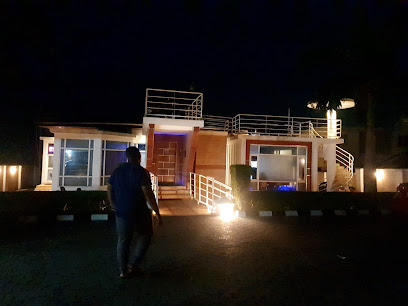
Stephen Keshi Stadium
Discover the energy of Nigerian sports at Stephen Keshi Stadium in Asaba, a premier venue for thrilling matches and vibrant cultural events.
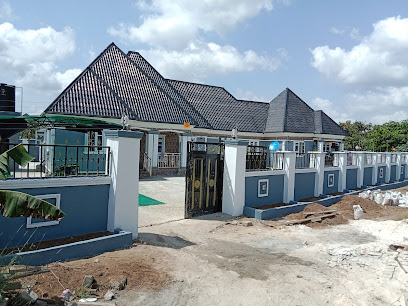
DELTA STATE LEISURE PARK AND FILM VILLAGE
Experience tranquility at the Delta State Leisure Park and Film Village, a lush oasis combined with the vibrant spirit of Nollywood.
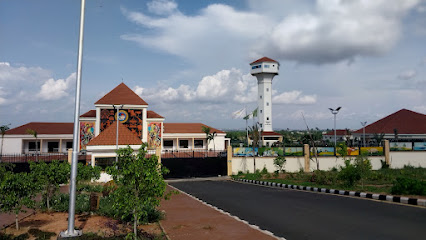
Maryam Babangida Leisure Park
Experience the tranquility of Maryam Babangida Leisure Park in Asaba, a perfect blend of nature and leisure activities for all visitors.
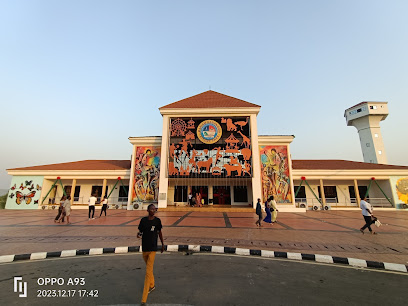
Cloud Vista
Discover Cloud Vista in Asaba: Where traditional flavors meet modern dining in a vibrant atmosphere for an unforgettable culinary adventure.
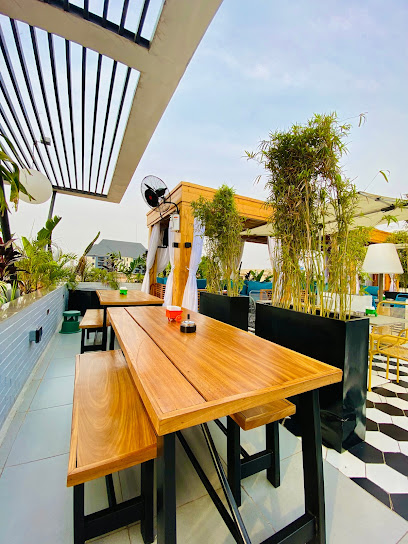
Vinmilan Amusement Park, Asaba
Experience the thrill and joy at Vinmilan Amusement Park in Asaba, where excitement meets family fun in a picturesque setting.
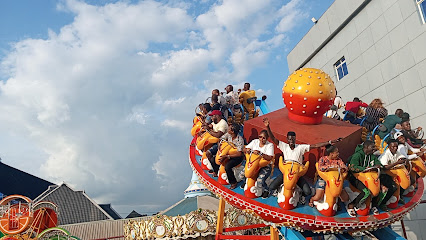
Delta State Government House
Discover the architectural beauty and political significance of the Delta State Government House in Asaba, a must-visit for culture and history enthusiasts.
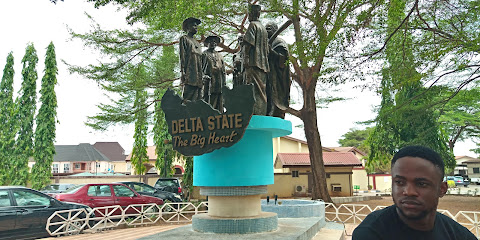
Asaba Gardens & Resort
Experience tranquility at Asaba Gardens & Resort in Delta State, where lush gardens, cozy accommodations, and local culture await you.

Unmissable attractions to see
Machala Republic
Explore the serene landscapes of Machala Republic, a tranquil park in Asaba, Delta, Nigeria, perfect for relaxation and outdoor adventures.
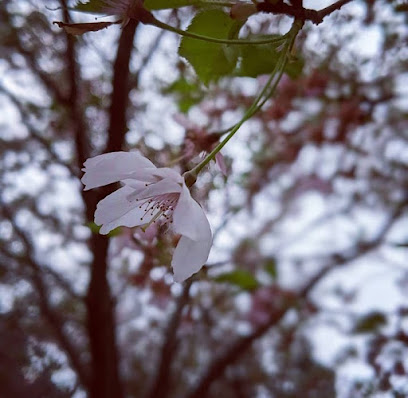
Ogbunike Cave
Explore the mystical Ogbunike Cave in Anambra, Nigeria, where nature's beauty meets rich cultural heritage and history.
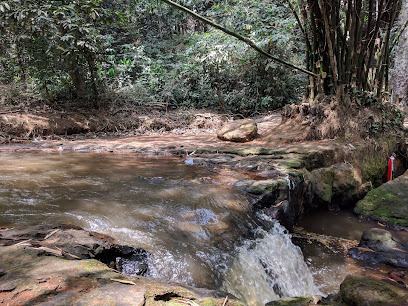
Maryam Babangida Leisure Park
Experience the lush beauty and vibrant culture of Maryam Babangida Leisure Park in Asaba, a perfect retreat for relaxation and adventure.
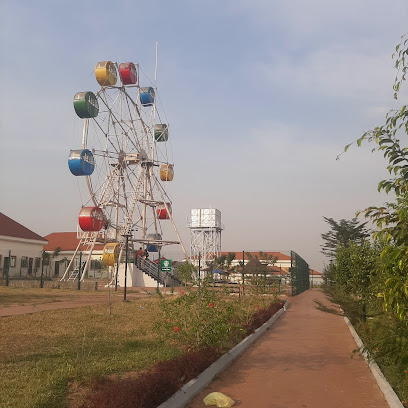
asaba modern market
Discover the heart of local culture at Asaba Modern Market, where vibrant stalls and delicious cuisine await every traveler in Delta State.
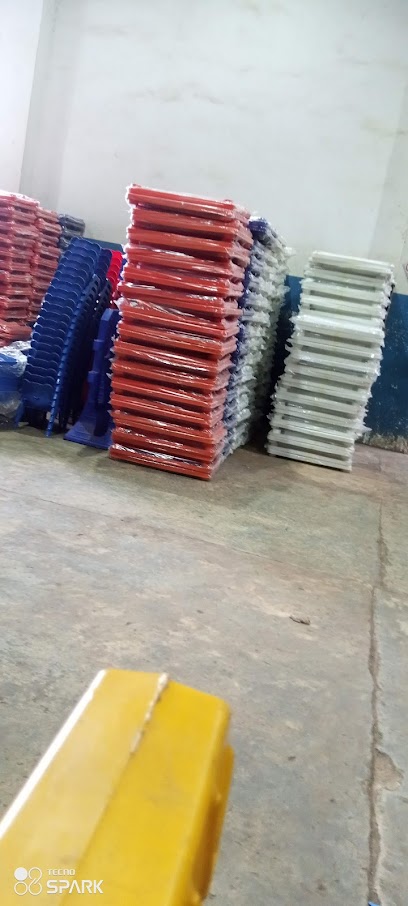
Nelson Mandela Gardens
Discover tranquility and cultural heritage at Nelson Mandela Gardens, a serene retreat inside Asaba International Airport.

PAK Rentals
Explore the serene beauty of PAK Rentals in Asaba, a tranquil garden oasis perfect for relaxation and nature lovers.
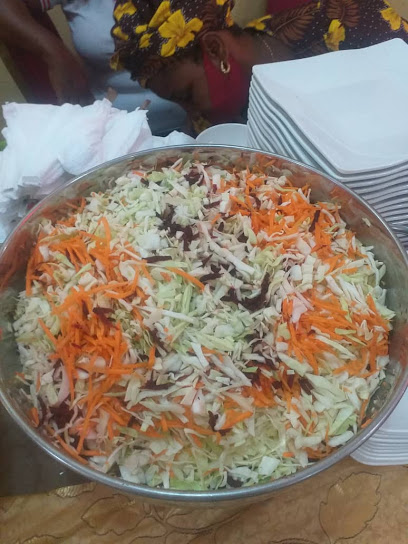
Shaloms Garden
Discover tranquility at Shaloms Garden, a lush green sanctuary in Asaba, perfect for relaxation and nature exploration.

Essential places to dine
Iyara Side African Kitchen
Experience authentic African flavors at Iyara Side African Kitchen in Asaba – where fast food meets tradition.
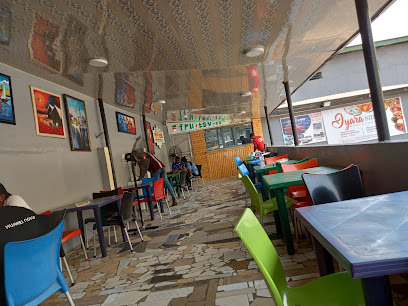
De Iceberg
Discover De Iceberg in Asaba - A perfect blend of refreshing drinks and delicious breakfasts in a vibrant atmosphere.
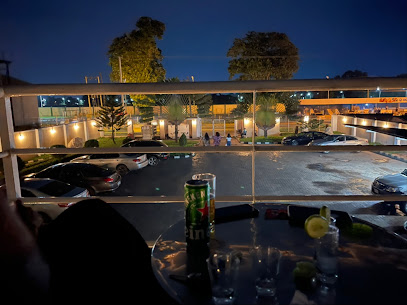
Pepper Rice African Kitchen
Experience authentic African flavors at Pepper Rice African Kitchen in Asaba – where every dish tells a story.
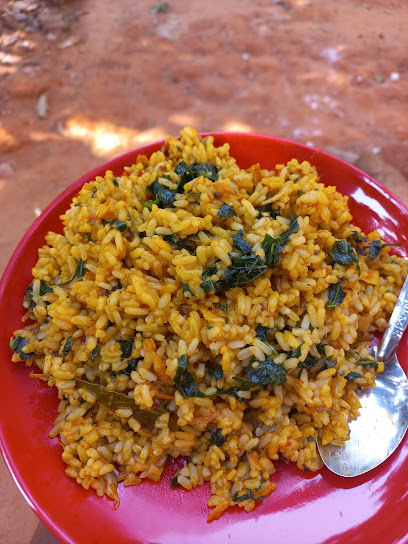
Divine Kitchen
Experience authentic Nigerian cuisine at Divine Kitchen in Asaba - where flavor meets tradition in a cozy setting.
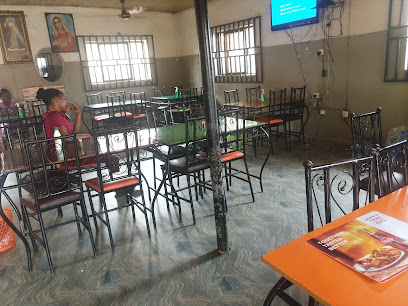
FiveStar Restaurant
Discover culinary excellence at FiveStar Restaurant in Asaba—where local flavors meet international cuisine for an unforgettable dining experience.
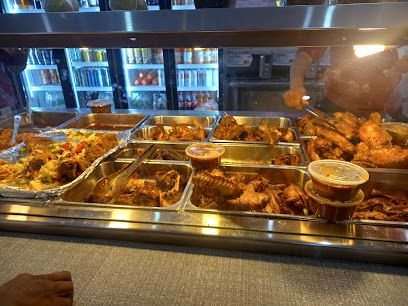
FIVE STAR RESTAURANT, Mariam Babangida Way by Express, Asaba, Delta State.
Experience culinary delights at Five Star Restaurant in Asaba – where fast food meets quality dining.
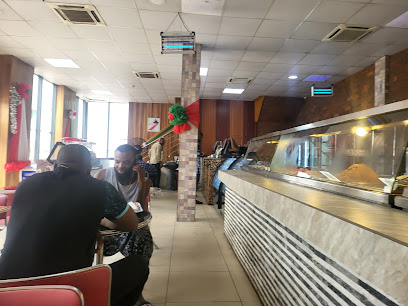
Zygon
Discover Zygon in Asaba: A premier grill restaurant offering authentic Nigerian flavors with a vibrant dining experience.

Cloud Vista
Experience culinary excellence at Cloud Vista in Asaba—where diverse flavors meet warm hospitality in an inviting atmosphere.
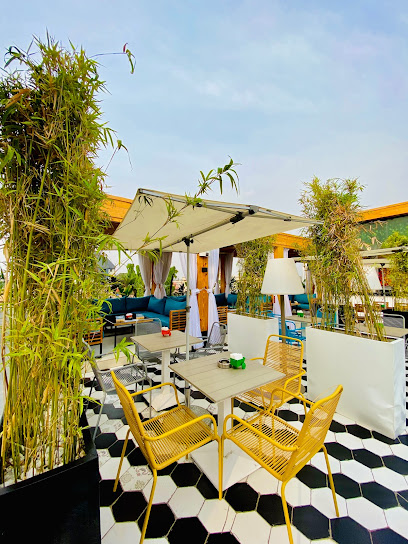
The Rodinia Restaurant, Asaba
Experience exquisite dining at The Rodinia Restaurant in Asaba – where local flavors meet international cuisine in a welcoming atmosphere.
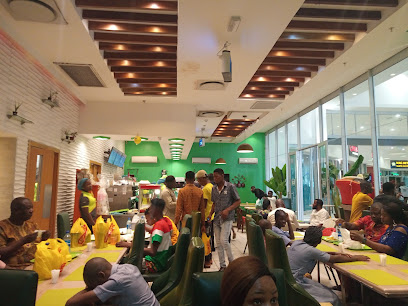
pokaribs. Native Kitchen & Lounge
Discover family-friendly dining at Pokaribs Native Kitchen & Lounge in Asaba – savor authentic Nigerian cuisine in a warm atmosphere.
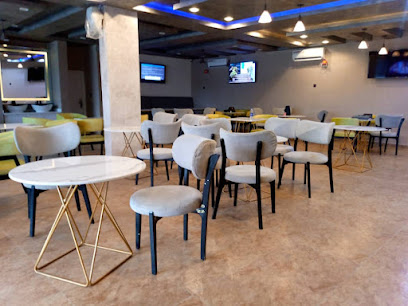
Frying Nemo Restaurant
Experience the freshest seafood delights at Frying Nemo Restaurant in Asaba - where local flavors meet exceptional dining.

Peptoma Tasty Cuisine
Discover the vibrant flavors of Nigeria at Peptoma Tasty Cuisine in Asaba - where local meets fast food in a delightful dining experience.
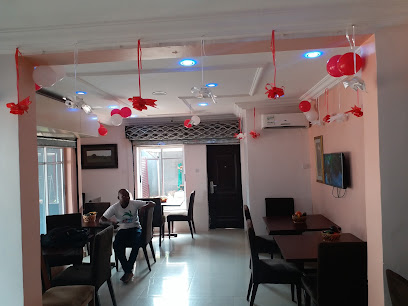
DownTown Lounge and Resturant
Savor delightful breakfast dishes at DownTown Lounge and Restaurant in Asaba – where vibrant flavors meet warm hospitality.
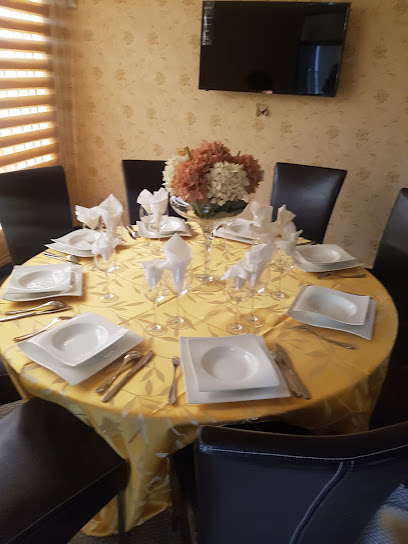
Nova Restaurant and Bar
Savor diverse cuisines at Nova Restaurant and Bar in Asaba - where local flavors meet global influences.
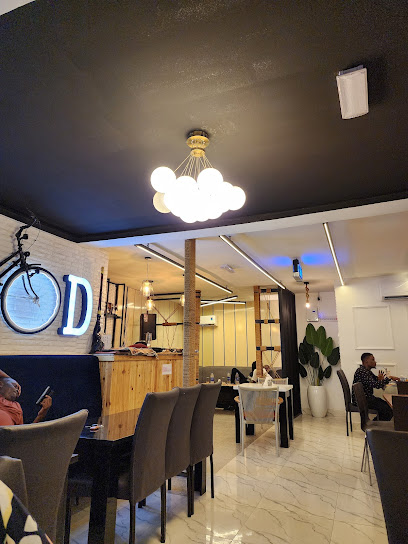
Achubis Hotel Limited
Experience authentic Nigerian cuisine at Achubis Hotel Limited in Asaba—where every meal tells a story of culture and flavor.

Markets, malls and hidden boutiques
Shoprite Asaba
Discover a world of shopping at Shoprite Asaba, where quality meets convenience in the heart of Delta State.
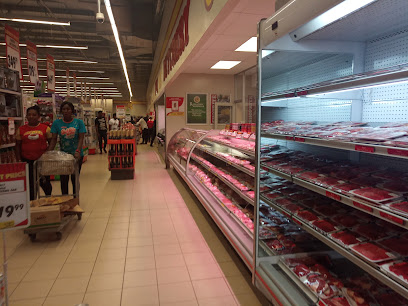
Ogbeogonogo market
Discover the vibrant Ogbeogonogo Market in Asaba, a hub of local culture, cuisine, and commerce in Delta State.
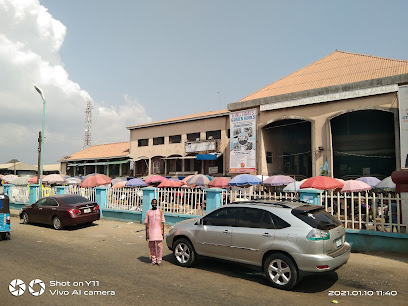
GABBS Supermarket
Explore GABBS Supermarket in Asaba for a rich selection of local and international groceries at affordable prices, perfect for every traveler.
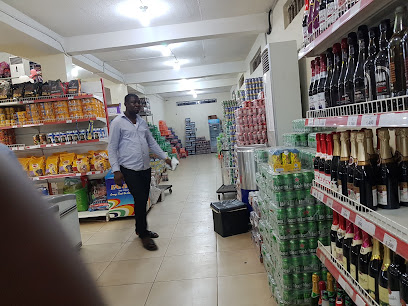
Konwea Shopping Plaza
Experience the vibrant shopping culture at Konwea Shopping Plaza in Asaba, Nigeria, where local charm meets diverse retail options.
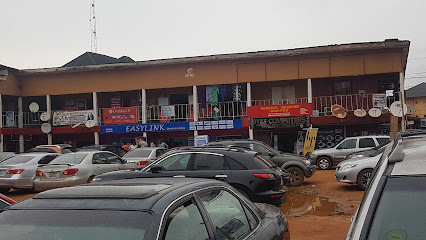
Editts One Stop Shop Mall
Discover Editts One Stop Shop Mall in Asaba for a comprehensive shopping experience with diverse groceries and a lively local atmosphere.
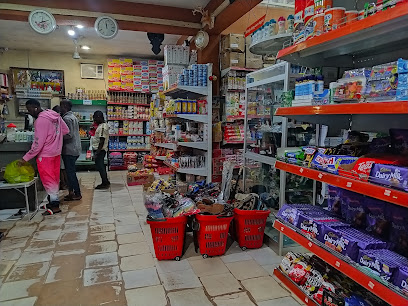
Annie Market Place
Explore Annie Market Place in Asaba for a vibrant shopping experience filled with local produce, international goods, and cultural delights.

Roban Stores Asaba
Experience the best of shopping at Roban Stores Asaba, where quality products and local flavors await you in a vibrant supermarket setting.
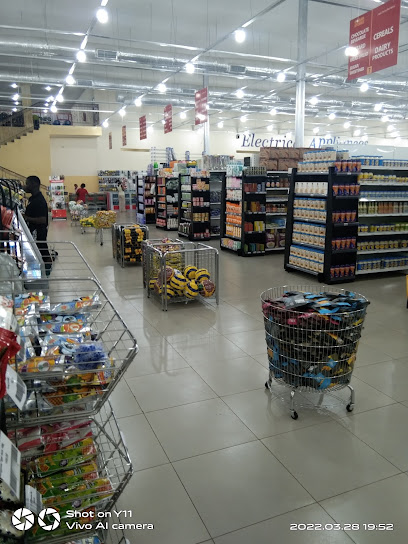
Jandqclothings (Asaba boutique)
Explore Jandqclothings in Asaba—a fashion boutique offering trendy clothing and accessories for men and women, perfect for every style enthusiast.

Mama's Mart
Explore the vibrant world of local shopping at Mama's Mart in Asaba, where fresh produce meets everyday essentials.
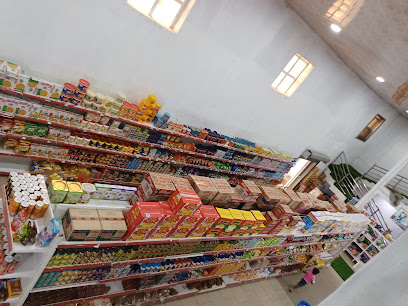
First Edition Plaza, Asaba
Explore First Edition Plaza in Asaba for a delightful shopping experience with diverse stores and dining options in a vibrant atmosphere.
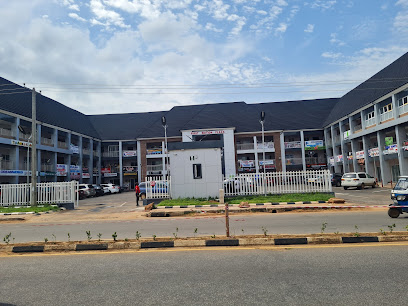
Stop 'n' Shop Global Mall
Experience vibrant shopping, dining, and entertainment at Stop 'n' Shop Global Mall in Asaba, a must-visit destination for tourists seeking local culture.
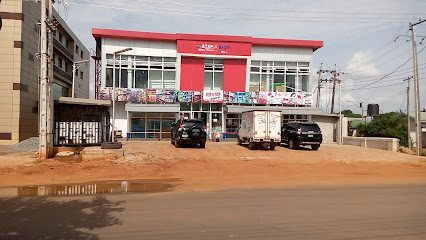
Shop Ohcee Enterprise
Discover a captivating selection of perfumes and stylish accessories at Shop Ohcee Enterprise in Asaba, your ultimate shopping destination.

Xandy_Fashion_Home
Explore Xandy Fashion Home in Asaba for trendy bags, handbags, and shoes that elevate your style. A must-visit boutique for fashion enthusiasts.

Ellacious collectibles
Explore Ellacious Collectibles in Asaba for unique underwear, jewelry, and trendy T-shirts, a must-visit for every traveler.

EMAB PLAZA
Experience the vibrant shopping and dining culture at EMAB Plaza, Asaba's premier destination for locals and tourists alike.
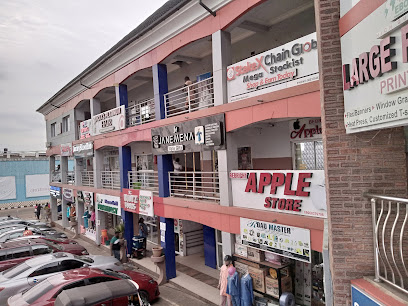
Essential bars & hidden hideouts
DON & MASTERS LOUNGE | NIGHT CLUB | EVENT CENTRE
Explore Don & Masters Lounge in Asaba for an unforgettable nightlife experience filled with music, drinks, and local culture.
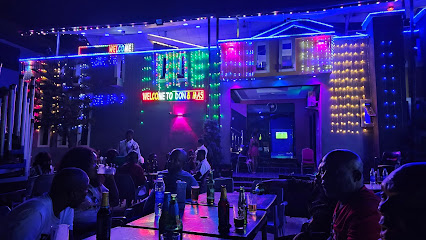
De Azera Bar
Experience the vibrant flavors and lively atmosphere at De Azera Bar, the ultimate grill destination in Asaba, Delta.
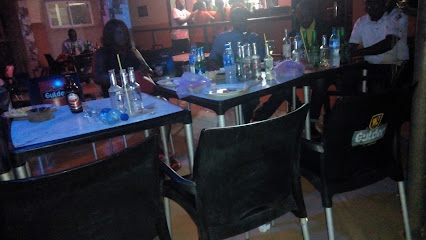
Gaga's Garden, Asaba
Discover the vibrant atmosphere of Gaga's Garden, a must-visit bar in Asaba, where relaxation meets socialization amidst delightful drinks and lively conversations.
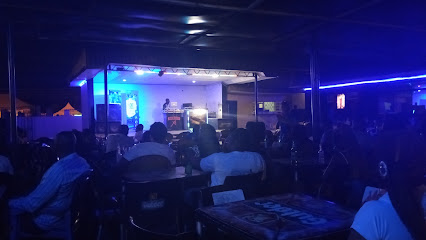
11:59 Bar
Discover the lively nightlife of Asaba at 11:59 Bar, where vibrant cocktails and local entertainment come together for an unforgettable evening.
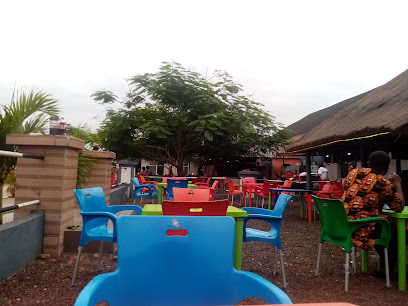
Empire Lounge
Discover the vibrant nightlife and serene elegance of Empire Lounge in Asaba, a perfect retreat for relaxation and socializing.
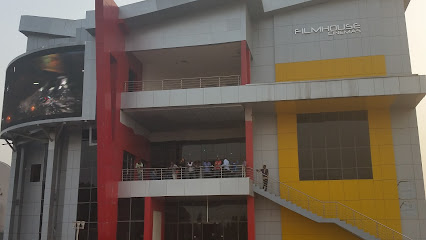
china bar
Discover the vibrant nightlife at China Bar in Asaba, where refreshing drinks and local culture blend seamlessly for an unforgettable experience.
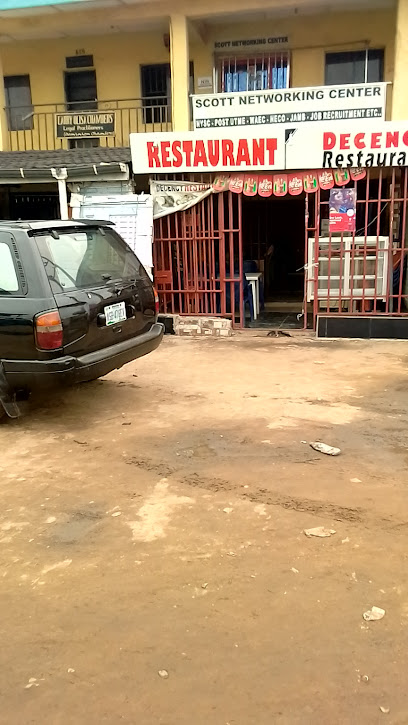
Sunshine Bar
Experience the lively ambiance and diverse drink selection at Sunshine Bar in Asaba, the perfect spot for relaxation and entertainment.
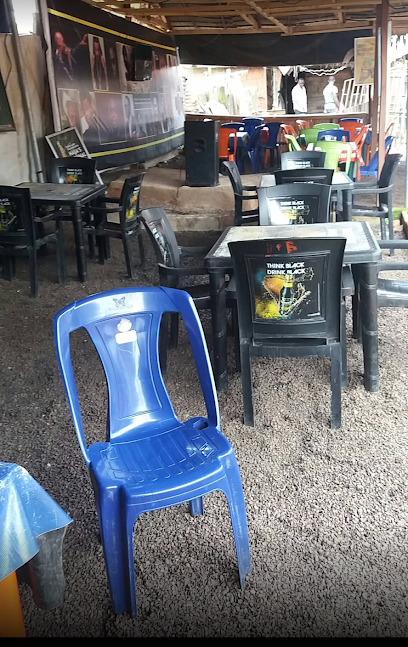
BALLERS LOUNGE ASABA
Discover the lively nightlife at Ballers Lounge Asaba, a vibrant bar offering a great selection of drinks and entertainment in Delta State.
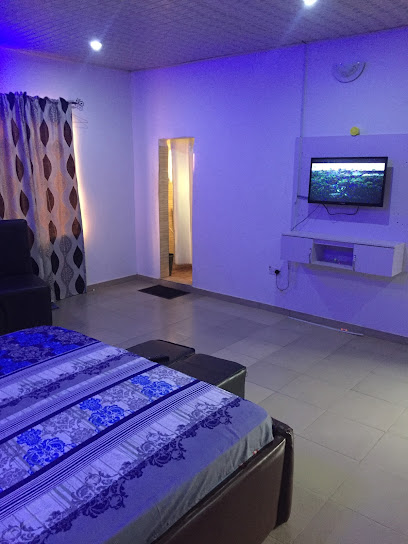
Royal pub bar
Discover the vibrant nightlife of Asaba at the Royal Pub Bar, a perfect blend of local drinks, music, and a welcoming atmosphere.

7Balls Bar n' Grill
Discover the vibrant nightlife of Asaba at 7Balls Bar n' Grill, a hotspot for chilled drinks and great music in a lively atmosphere.

Tiger Bar
Discover the vibrant nightlife of Asaba at Tiger Bar, where locals and tourists unite for unforgettable drinks and entertainment.
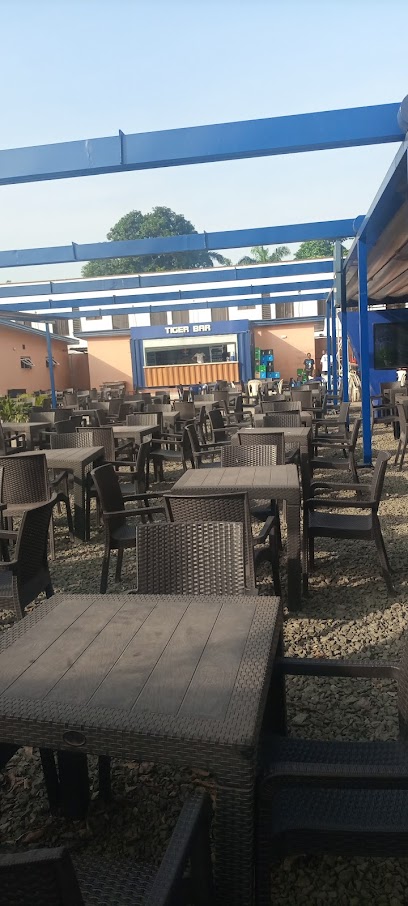
Anchor Bar & Resort
Discover the lively nightlife at Anchor Bar & Resort in Asaba, offering a unique ambiance, delicious drinks, and unforgettable entertainment.
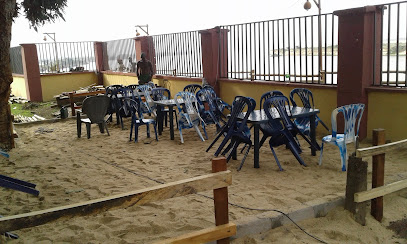
HK BAR & LOUNGE
Experience the vibrant nightlife at HK Bar & Lounge in Asaba, where local culture meets refreshing drinks and lively entertainment.
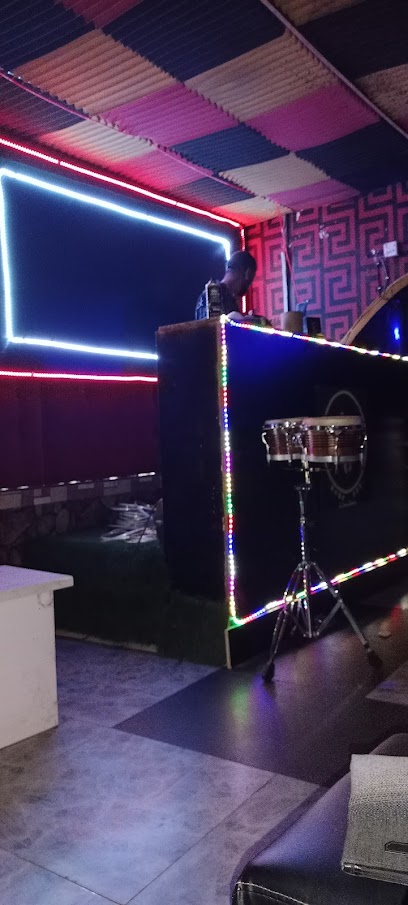
Stanley's Bar
Discover the vibrant nightlife of Asaba at Stanley's Bar, where locals and tourists unite over drinks and lively conversations.

Local Phrases
-
- HelloNdewo
[N-deh-wo] - GoodbyeKachifo
[Ka-chee-fo] - YesEe
[Eh] - NoMba
[M-ba] - Please/You're welcomeBiko
[Bee-ko] - Thank youDaalu
[Da-ah-lu] - Excuse me/SorryKedu
[Ke-doo] - How are you?Kedu ka i mere?
[Ke-doo ka ee meh-reh] - Fine. And you?Olee. Otu ka i mere?
[Oh-lay. Oh-too ka ee meh-reh] - Do you speak English?O nwere ihe na-eme i bekee?
[Oh n-weh-reh ee-heh nah-eh-meh ee beh-keh] - I don't understandAghotara m
[Ah-go-ta-rah-m]
- HelloNdewo
-
- I'd like to see the menu, pleaseA ga adi menu, biko
[Ah-gah ah-dee meh-noo, bee-ko] - I don't eat meatA ghotara agu
[Ah-go-ta-rah ah-goo] - Cheers!Nwafor!
[N-wah-for] - I would like to pay, pleaseA ga adi ego, biko
[Ah-gah ah-dee eh-go, bee-ko]
- I'd like to see the menu, pleaseA ga adi menu, biko
-
- Help!Mkpuru mmadu!
[M-kpoo-roo mmah-doo] - Go away!Kpuchie!
[K-poo-chee-eh] - Call the Police!Kpem osisi!
[K-pem oh-see-see] - Call a doctor!Kpem doctor!
[K-pem doctor] - I'm lostA cholu m
[Ah choh-loo-m] - I'm illA na-ere
[Ah nah-eh-reh]
- Help!Mkpuru mmadu!
-
- I'd like to buy...A ga ejide...
[Ah-gah eh-jee-deh] - I'm just lookingA nyele
[Ah nyeh-leh] - How much is it?Ozi gini a?
[Oh-zee gee-nee ah] - That's too expensiveOzi di mma mma
[Oh-zee dee mah mah] - Can you lower the price?O nwere ihe na-agbanyeghi ozi?
[Oh n-weh-reh ee-heh nah-ah-bahn-yeh-gee oh-zee]
- I'd like to buy...A ga ejide...
-
- What time is it?Keduzi oge di?
[Ke-doo-zee oh-geh dee] - It's one o'clockOge o di otu
[Oh-geh oh dee oh-too] - Half past (10)Oge na otu
[Oh-geh nah oh-too] - MorningUtutu
[Oo-too-too] - AfternoonEhihie
[Eh-hee-heh] - EveningMgbede
[Mm-gbeh-deh] - YesterdayEte
[Eh-teh] - TodayTaa
[Tah] - TomorrowEke
[Eh-keh] - 1Otu
[Oh-too] - 2Abuo
[Ah-boo-oh] - 3Atolu
[Ah-toh-loo] - 4Anwa
[Ah-nwah] - 5Ise
[Ee-seh] - 6Isii
[Ee-see-ee] - 7Asaa
[Ah-sah-ah] - 8Asato
[Ah-sah-toh] - 9Itoolu
[Ee-toh-loo] - 10Iri
[Ee-ree]
- What time is it?Keduzi oge di?
-
- Where's a/the...?Ebee ka...
[Eh-beh-kah] - What's the address?Kedu ka adreesi?
[Ke-doo ka ah-dree-see] - Can you show me (on the map)?O nwere ihe na-enye m (na map)?
[Oh n-weh-reh ee-heh nah-eh-nyeh-m (nah map)] - When's the next (bus)?Kedu ya nke (bus) ife?
[Ke-doo yah nk-eh (bus) ee-feh] - A ticket (to ....)Ego (si ....)
[Eh-go (see)]
- Where's a/the...?Ebee ka...
History of Asaba
-
Asaba, the capital city of Delta State, Nigeria, traces its origins back to the 15th century when it was founded by Nnebisi, a prince from Nteje in Anambra State. Nnebisi, whose mother was an Igala princess, settled in the area and named it 'Ahaba', meaning 'I have chosen well', which later evolved into Asaba. The city initially served as a strategic trading post and meeting ground for various ethnic groups, including the Igbo, Yoruba, and Hausa.
-
In the late 19th century, Asaba became a significant location for British colonial administration. The city gained prominence when the Royal Niger Company established its headquarters there in 1886. This period saw the construction of European-style buildings and the introduction of Western education and Christianity. Asaba’s strategic position along the Niger River made it a crucial gateway for trade and transportation.
-
One of the most tragic events in Asaba's history is the Asaba Massacre, which occurred on October 7, 1967, during the Nigerian Civil War. Federal troops entered Asaba and in a tragic turn of events, rounded up and executed hundreds of men and boys, accusing them of being Biafran sympathizers. This massacre had a profound impact on the community, and memorials and annual commemorations continue to honor the victims.
-
Post-independence Nigeria saw Asaba evolve into a burgeoning urban center. The construction of the Asaba-Onitsha Bridge in 1965 further facilitated commerce and connectivity between the eastern and western parts of Nigeria. Asaba was designated the capital of the newly created Delta State in 1991, which spurred infrastructural development, including government buildings, educational institutions, and healthcare facilities.
-
Asaba is rich in cultural heritage, with traditions deeply rooted in Igbo customs. The city is known for its vibrant festivals, such as the Ine Festival, which celebrates the new yam harvest and the Igbu Uzo, a rite of passage for young men. These festivals are characterized by traditional dances, music, and elaborate masquerades, reflecting the city's rich cultural tapestry. The Anioma Festival, celebrated annually, showcases the cultural diversity of the Anioma people of which Asaba is a part.
-
In recent years, Asaba has experienced significant economic growth, attracting investments in various sectors such as real estate, hospitality, and entertainment. The presence of the Asaba International Airport has enhanced the city's connectivity, making it a hub for business and tourism. Social amenities have improved, with numerous shopping malls, recreational centers, and educational institutions contributing to the city's modern landscape.
Asaba Essentials
-
Asaba is well-connected by air, road, and waterways. The Asaba International Airport serves as the main gateway, with flights from major Nigerian cities like Lagos and Abuja. By road, Asaba is accessible via the Niger Bridge, connecting it to Onitsha and other eastern cities. If you prefer to travel by water, you can take a boat from Onitsha across the River Niger.
-
Within Asaba, transportation options include taxis, motorbikes (okadas), and tricycles (keke napeps). Public buses are also available for longer routes. Car rentals are another option for those who prefer to drive themselves. Traffic can be heavy during peak hours, so plan your trips accordingly.
-
The official currency is the Nigerian Naira (NGN). Credit and debit cards are accepted in most hotels, restaurants, and larger shops, but cash is often preferred for smaller transactions. ATMs are widely available in the city, but it's advisable to carry some cash, especially if you plan to visit more remote areas.
-
Asaba is generally safe for tourists, but standard precautions should be taken. Avoid walking alone at night and keep your belongings secure in crowded places. Areas like Umuagu and Cable Point have reported higher crime rates, so exercise caution when visiting these neighborhoods. Always use reputable transportation services.
-
In case of an emergency, dial 112 for immediate assistance. Asaba has several hospitals and clinics that provide medical services. The Federal Medical Centre Asaba is the largest healthcare facility in the city. It's advisable to have travel insurance that covers medical emergencies. Pharmacies are also available for minor health issues.
-
Fashion: Do dress modestly, especially when visiting religious sites or rural areas. Avoid overly revealing clothing. Religion: Do respect local religious practices. Remove your shoes before entering a mosque and dress conservatively. Public Transport: Do be polite and give up your seat to elderly passengers. Don’t eat or drink on public transport. Greetings: Do greet people with a handshake; a warm smile is also appreciated. Eating & Drinking: Do try local dishes and accept food graciously when offered. Don’t refuse hospitality, as it is considered rude.
-
To experience Asaba like a local, visit the Ogbogonogo Market where you can buy fresh produce and traditional goods. Engage with locals, as they are often friendly and willing to share stories about the city's history and culture. Don't miss the Asaba Beach, which offers a relaxing escape and beautiful views of the River Niger. For a unique experience, attend local festivals such as the Asaba Ofala Festival, which showcases vibrant cultural performances.
Trending Landmark in Asaba
-
CARTEGE CINEMAS ASABA
-
Ogbeogonogo market
-
Econos Technology Nigeria Limited (ETNIL)
-
Midwifery Market
-
Summit Junction Asaba (Climax De Top)
-
Nelson Mandela Gardens and Resort
-
Pinnacle Castle Hotel Asaba
-
De Iceberg
-
Stephen Keshi Stadium
-
DELTA STATE LEISURE PARK AND FILM VILLAGE
-
Maryam Babangida Leisure Park
-
Cloud Vista
-
Vinmilan Amusement Park, Asaba
-
Delta State Government House
-
Asaba Gardens & Resort
Nearby Cities to Asaba
-
Things To Do in Onitsha
-
Things To Do in Owerri
-
Things To Do in Enugu
-
Things To Do in Benin City
-
Things To Do in Warri
-
Things To Do in Port Harcourt
-
Things To Do in Uyo
-
Things To Do in Calabar
-
Things To Do in Mamfe
-
Things To Do in Abuja
-
Things To Do in Ibadan
-
Things To Do in Malabo
-
Things To Do in Buea
-
Things To Do in Limbe
-
Things To Do in Lagos







